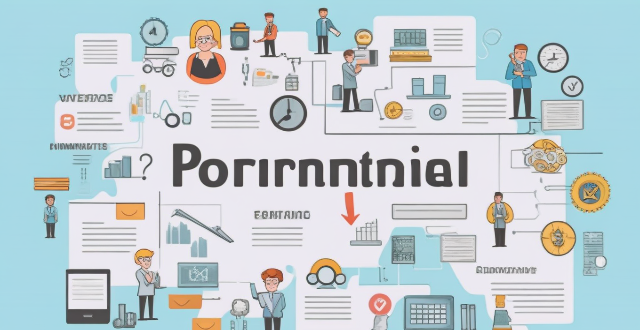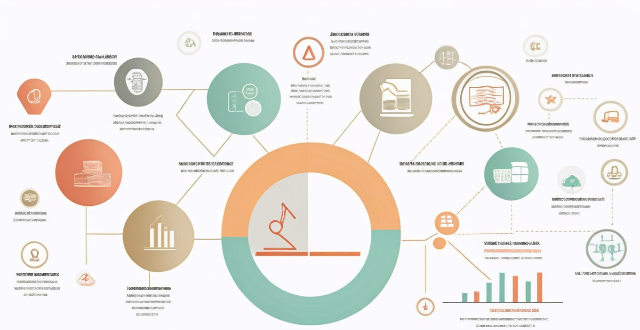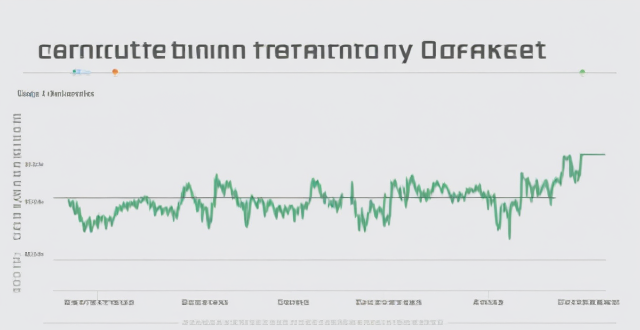Market Investor

What is the role of a broker in the stock market ?
Brokers play a key role in the stock market, acting as intermediaries between investors and financial markets. They facilitate trades, provide market information, offer investment advice, manage accounts, and execute complex trades. Their expertise helps investors make informed decisions and manage their portfolios effectively.

What is the stock market and how does it work ?
The stock market is a financial ecosystem where investors can buy and sell ownership shares of publicly traded companies. Companies use it to raise capital, while investors aim to share in the company's success. Prices of stocks are determined by supply and demand, influenced by various factors including company performance, market trends, and economic conditions. The market is regulated to protect investors and maintain fairness. Investing in stocks comes with risks but also offers potential rewards, making it a popular choice for long-term investments.

What is the difference between a bull and bear market ?
The main difference between a bull and bear market lies in the direction of the market trend and the overall sentiment among investors. Bull markets are characterized by rising stock prices and optimism, while bear markets are characterized by falling stock prices and pessimism.

What is the future of cryptocurrency investments ?
The future of cryptocurrency investments is uncertain and depends on various factors such as regulatory changes, technological advancements, market trends, and investor sentiment. Regulatory changes could either limit the growth of the industry or attract more investors. Technological advancements could lead to increased adoption or cause a decline in prices. Market trends like acceptance by companies and institutional investors could drive up demand and prices. Investor sentiment plays a crucial role in determining the future of cryptocurrency investments. It is important to do research and consult with a financial advisor before making any investment decisions.

How are climate change and investor responsibility interconnected ?
Climate change and investor responsibility are interconnected in several ways. As investors, it is important to consider the impact of our investments on the environment and society as a whole. Here are some key points that highlight the interconnection between climate change and investor responsibility: 1. Environmental Impact of Investments 2. Risk Management 3. ESG Criteria 4. Regulatory Changes 5. Shareholder Activism 6. Reputational Risk

How do economic indicators affect stock market performance ?
Economic indicators significantly impact stock market performance by reflecting the health of an economy. Key indicators include GDP, inflation rate, unemployment rate, interest rates, trade balance, consumer confidence index, and manufacturing index. Each of these measures provides insights into different aspects of economic activity, influencing investor sentiment and decision-making processes. By understanding how these indicators affect the stock market, investors can make informed decisions to maximize returns while minimizing risks.

How do political events affect the stock market, and how can they be analyzed ?
This comprehensive analysis explores the impact of political events on the stock market, including economic policies, regulatory changes, international relations, and elections. It also provides strategies for analyzing their potential effects, such as staying informed, diversifying your portfolio, using technical and fundamental analysis, and monitoring sentiment indicators.

What is the current state of the US stock market ?
The US stock market is currently experiencing a mix of positive and negative trends, including strong economic growth and technology sector performance, but also significant market volatility and trade tensions. Factors impacting the market include interest rates, global economic conditions, and geopolitical risks.

How do I negotiate terms with an investor without giving away too much control ?
Negotiating terms with an investor requires careful consideration and planning. Here are some tips on how to negotiate terms with an investor without giving away too much control: 1. Understand your value proposition: Before entering into any negotiations, it's essential to understand the value of your business. This includes knowing your company's strengths, weaknesses, opportunities, and threats (SWOT analysis). 2. Set clear expectations: It's crucial to set clear expectations from the outset of the negotiation process. This means being upfront about what you're willing to give up and what you're not. 3. Focus on long-term goals: When negotiating with an investor, keep your long-term goals in mind. Consider how the terms of the investment will impact your business in the future and whether they align with your long-term vision. 4. Be willing to walk away: If an investor is asking for too much control or making unreasonable demands, don't be afraid to walk away from the deal. Remember that there are other investors out there who may be more willing to work with you on terms that suit both parties. 5. Seek legal advice: Before finalizing any agreements with an investor, seek legal advice. A lawyer can help you understand the implications of the terms being proposed and ensure that your interests are protected.

What are some red flags that might discourage investors from funding my startup ?
Investors look for signs that a startup may not be a good investment. Here are some common red flags: 1. **Lack of a Clear Business Model**: Undefined revenue streams, no competitive advantage, ignoring market research, and underestimating costs can discourage investors. 2. **Poor Financial Management**: Lack of financial projections, inadequate funding, high burn rate, and unrealistic valuation raise concerns. 3. **Weak Team Dynamics**: A lack of diversity, inexperienced leadership, high turnover rates, and poor communication within the team or with investors are problematic. 4. **Legal and Ethical Concerns**: Intellectual property disputes, regulatory non-compliance, and ethical issues can deter investors. 5. **Product and Technology Issues**: Technological limitations, scalability problems, and a lack of innovation are major concerns. 6. **Market and Sales Challenges**: A small addressable market, saturated markets, and sales execution risks can make investors hesitant.

How do interest rates affect bond prices and yields ?
Bond prices and yields are inversely related to interest rates. When interest rates rise, bond prices fall, and vice versa. This is because the yield on a bond is determined by its coupon rate, which is fixed at the time of issuance. Therefore, if interest rates increase after the bond is issued, the yield on the bond will be lower than the current market rate, making it less attractive to investors. Conversely, if interest rates decrease after the bond is issued, the yield on the bond will be higher than the current market rate, making it more attractive to investors. Other factors that affect bond prices and yields include credit risk, inflation expectations, and economic growth. When interest rates rise, bond prices fall, and the yield curve steepens. When interest rates decrease, bond prices rise, and the yield curve flattens. To manage interest rate risk, investors can diversify their portfolio across different types of bonds and maturities, use hedging strategies such as interest rate swaps and futures and options contracts, and engage in active management through market timing and credit analysis.

What are the key factors to consider when analyzing the stock market ?
Analyzing the stock market involves considering economic indicators, company financials, industry trends, market sentiment, technical analysis, and risk management. Economic indicators provide insights into the overall health of the economy, while company financials assess the financial health of individual companies. Industry trends help understand the prospects of the industry in which a company operates. Market sentiment can impact stock prices, even if it doesn't necessarily reflect the underlying fundamentals of a company or the economy. Technical analysis involves studying past price patterns to predict future movements. Proper risk management is crucial when investing in the stock market, including diversification, stop-loss orders, position sizing, and evaluating the potential rewards against the risks involved in each trade.

What are the risks involved in investing in the stock market ?
The stock market offers lucrative opportunities for investors but also comes with its own set of risks. These include: - Market Risk, which affects the entire market and cannot be diversified away; - Liquidity Risk, where you may not be able to sell your shares quickly enough; - Interest Rate Risk, affecting bond investors and stock prices; - Business Risk, related to a company's performance declining due to factors such as poor management or increased competition; - Inflation Risk, where inflation erodes the purchasing power of your investments; - Political Risk, impacting your investments due to political events; - Currency Risk, affecting those who invest in foreign markets.

How do I pitch my business idea to potential investors ?
Pitching a business idea to potential investors is crucial for securing funding. It involves careful preparation, clear communication, and a compelling narrative. Research the investor's background, craft a story that defines the problem and solution, and create a pitch deck with visuals. Practice your pitch, connect with the investor, and be ready for questions. Follow up with a thank-you note and maintain contact.

What is the role of macroeconomic indicators in stock market analysis ?
The article discusses the importance of macroeconomic indicators in stock market analysis, highlighting key indicators such as economic growth, inflation, interest rates, employment, and government policies. It suggests monitoring these indicators to identify trends and patterns that can impact the stock market, integrating this analysis with other tools for a comprehensive view.

Who are the main participants in the carbon trading market ?
The carbon trading market is a complex ecosystem involving various stakeholders who play crucial roles in reducing greenhouse gas emissions and promoting sustainable development. These participants include governments and regulatory bodies, companies and businesses, investors and financial institutions, project developers and consulting firms, and NGOs and environmental groups. Governments establish the legal framework and policies that govern the market, while companies are required to hold sufficient allowances to cover their emissions or purchase additional allowances if needed. Investors provide liquidity by buying and selling allowances based on their expectations of future price movements. Project developers design and implement projects that generate credits for sale on the carbon market, working closely with governments, companies, and investors. NGOs and environmental groups advocate for stronger climate policies and support initiatives that promote sustainable development.

What are the risks associated with investing in the carbon trading market ?
The carbon trading market offers lucrative investment opportunities but also carries significant risks, including price volatility, lack of transparency, legal and regulatory changes, and environmental impacts. To mitigate these risks, investors should diversify their portfolios, conduct thorough research, stay updated on regulatory changes, and consider the environmental impact of their investments. By taking these steps, investors can potentially reduce their exposure to risks while still benefiting from the profitability of the carbon trading market.

Can you explain the concept of market capitalization and its significance in stock analysis ?
Market capitalization is a crucial financial metric that reflects the total dollar value of a company's outstanding shares. It is calculated by multiplying the current market price per share by the total number of outstanding shares. Market cap helps investors and analysts assess a company's size and potential growth opportunities, serving as a fundamental tool in stock analysis. Large-cap stocks represent well-established companies, while mid-cap and small-cap stocks indicate potential for growth but come with higher risks. Market cap also influences investment strategies, such as diversification and index fund investing, and is used in valuation metrics like P/B and P/E ratios. Understanding market cap allows for informed decisions on portfolio construction, risk management, and valuation assessments.

How is the price of carbon credits determined in the carbon trading market ?
The price of carbon credits in the carbon trading market is determined by various factors, including supply and demand, regulatory policies, and market dynamics. The balance between supply and demand significantly affects the price, with high demand increasing the price and oversupply decreasing it. Regulatory policies such as cap-and-trade systems and carbon taxes also play a crucial role in setting limits on emissions and creating incentives for companies to reduce their emissions or purchase carbon credits to offset them. Market dynamics such as speculation, liquidity, and transparency can also impact the price of carbon credits. As awareness of climate change grows, the demand for carbon credits is likely to increase, driving up their price. However, ensuring transparent and efficient operation of the carbon market is essential to maximize its potential benefits for both companies and the environment.

How can green bonds help finance climate-friendly projects ?
Green bonds are financial instruments that raise capital specifically for climate and environmental projects. They offer increased funding opportunities by attracting a diverse investor base interested in sustainable investing, aligning with ESG criteria, and providing attractive returns. Transparency and accountability are ensured through rigorous certification processes, third-party reviews, and reporting requirements. Green bonds also catalyze climate action by incentivizing sustainable practices and supporting innovation in clean technology. Furthermore, they encourage wider market participation through investor education, public awareness campaigns, policy support, and international collaboration. Overall, green bonds are crucial for financing climate-friendly projects and accelerating the transition to a more sustainable economy.

What is the future outlook for gold investment ?
The future outlook for gold investment is influenced by various factors such as economic conditions, monetary policy, supply and demand dynamics, and investor sentiment. Economic uncertainty can drive up the demand for gold as a safe-haven asset, while periods of growth may decrease its value. Central banks' interest rate decisions and money supply changes can also impact gold prices. Supply and demand dynamics, including mining production and jewelry demand, play a role in determining gold availability and price. Finally, investor sentiment towards gold can be shaped by market trends, investment strategies, and overall risk appetite. By monitoring these key factors, investors can make informed decisions about the viability of gold as a portfolio addition in the coming years.

What is the impact of financial regulation on global financial markets ?
Financial regulation is vital for maintaining stability and efficiency in global financial markets. It influences market stability by reducing volatility and preventing crises, improves risk management through enhanced transparency and control over high-risk practices, protects investors from fraud and unfair trading practices, and fosters innovation while ensuring safety and compliance. This balance is crucial for the health and growth of the global economy.

What are the best practices for pricing items in a second-hand market ?
When selling items in a second-hand market, it's essential to follow best practices for pricing to maximize profits and ensure a smooth transaction. Key tips include researching market value, considering the item's condition, setting a fair price, being open to negotiations, and updating the listing regularly. By following these guidelines, sellers can attract more potential buyers and increase their chances of making a successful sale.

What are the challenges and opportunities for developing countries in the carbon trading market ?
Challenges and opportunities for developing countries in the carbon trading market include lack of infrastructure, legal and regulatory hurdles, market access and information asymmetry, capacity building needs, economic growth and investment, technology transfer and innovation, environmental sustainability, policy influence and leadership.

What is the role of credit rating agencies in bond investing ?
Credit rating agencies are pivotal in bond investing, offering independent assessments of issuers' creditworthiness. They conduct thorough analyses and assign ratings reflecting the likelihood of default, aiding investors in risk evaluation and portfolio diversification. These ratings contribute to market transparency, efficient price discovery, and enhanced liquidity. They also play a role in regulatory compliance for institutional investors and capital markets regulation. However, concerns about conflicts of interest and rating accuracy during crises highlight the need for improved methodologies and increased accountability.

How has social distancing impacted the economy and job market ?
Social distancing measures have had a significant impact on the economy and job market, including decreased consumer spending, supply chain disruptions, high unemployment rates, increased demand for remote work, and changes in job seeking behavior.

What are the key indicators of economic recovery ?
Economic recovery is a complex process that involves several key indicators. These indicators are used to gauge the health and growth of an economy after a period of decline or recession. Some of the most important indicators of economic recovery include GDP growth, employment rates, consumer spending, business investment, the housing market, inflation rates, trade balance, and stock market performance. Each of these indicators provides valuable insights into the overall health and growth of an economy.

Can you explain the concept of dollar-cost averaging in investing ?
Dollar-cost averaging is an investment method where a fixed amount of money is invested at regular intervals, regardless of the asset's current price. This approach aims to reduce the impact of market volatility and timing on the overall investment portfolio. Key principles include regular investments, a fixed dollar amount, and a long-term focus. Advantages include less volatility, reduced market timing risk, and disciplined convenience. Disadvantages may include opportunity cost, transaction costs, and potential underperformance in a steadily rising market. The strategy works by selecting an investment, determining the investment amount, setting up automatic purchases, and staying disciplined. Dollar-cost averaging offers a straightforward method for building an investment portfolio over time but should be considered alongside individual circumstances and financial advice.

How has the COVID-19 pandemic affected the financial markets ?
The COVID-19 pandemic caused significant disruptions in financial markets, including increased volatility, sector-specific impacts, and central bank interventions. Stock markets experienced sharp declines initially, with travel and retail sectors hit hard, while healthcare and technology sectors generally fared well. Central banks cut interest rates and injected liquidity to stabilize markets. Bond markets saw increased activity, and oil prices experienced dramatic swings. Investor behavior shifted towards defensive investing, and economic indicators showed negative trends. The long-term implications of these changes are still unfolding but are likely to shape the financial landscape for years to come.

How can I invest in the carbon trading market ?
The carbon trading market offers a lucrative investment opportunity for those interested in environmental sustainability and financial gain. To invest successfully, one should understand the basics of carbon trading, research different carbon markets, choose a broker or exchange, determine an investment strategy, and start trading while managing risk.